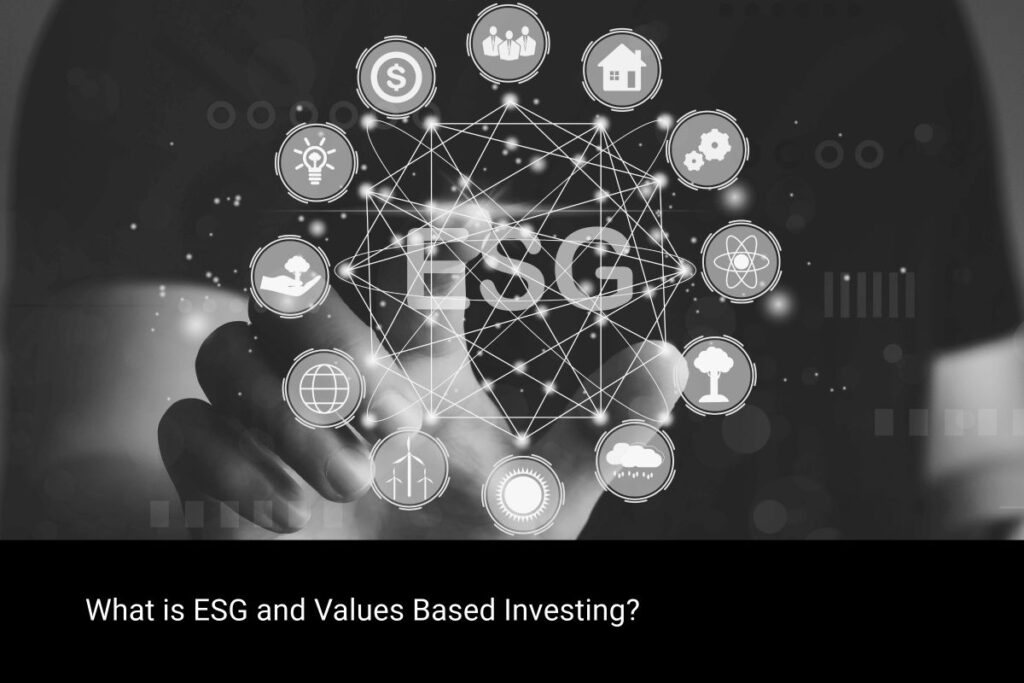ESG (Environmental, Social, and Governance), Socially Responsible Investing, and other Values-Based Investing approaches are gaining prominence in today’s modern investment landscape. Investors now have greater flexibility than ever before to tailor their investment portfolios to align with their personal beliefs and values. According to a 2022 Gallup poll, nearly half of investors express interest in ESG and other forms of values-based investing. As the owner of an investment advisory firm, I’ve observed a growing number of clients proactively seeking ESG or values-oriented portfolios compared to previous years. So, what’s all the hype about?
What is Values-Based Investing?
Before delving into common terms like ESG and Socially Responsible Investing, it’s essential to understand Values-Based Investing. This approach involves creating an investment portfolio that not only aligns with your financial goals and objectives but also reflects your personal beliefs and values. In today’s investing environment, you can construct a portfolio that excludes companies involved in activities you oppose, such as firearms manufacturing. Furthermore, you can find funds and investments that cater to different beliefs, from Christian-oriented funds to Sharia-compliant options. In essence, Values-Based Investing, while often associated with Socially Responsible and ESG strategies, is a highly individualized approach that allows you to express your freedom of speech through your hard-earned dollars.
What is ESG Investing?
ESG stands for Environmental, Social, and Governance. An ESG criteria assess how well a specific company addresses environmental concerns, its social impact, and the quality of its corporate governance. By investing based on ESG criteria, you aim to support companies striving to make the world a better place while avoiding those that perform poorly in these areas. Let’s break down each component:
Environment: When evaluating a company’s environmental impact, various exclusionary approaches are possible. For instance, one common screen involves avoiding companies heavily invested in oil or those contributing to deforestation.
Social: Assessing a company’s social impact involves examining not only its internal practices but also its broader influence on communities. For example, you might favor companies that refrain from manufacturing and selling guns to civilians or that promote women’s access to healthcare while avoiding those involved in the prison industrial complex.
Governance: Governance criteria focus on a company’s internal operations, including executive board diversity and shareholder interactions. Companies with inadequate female or minority representation on their boards may be excluded.
Given the complexity, ESG investing is often facilitated through mutual funds or ETFs. Fund managers use a multifactor ESG screen to filter out companies based on ESG criteria, enabling investors to access a diversified portfolio that aligns with their values or ESG preferences.
What is Socially Responsible Investing (SRI)?
Socially Responsible Investing, like ESG, concentrates on social issues such as human rights and ethical considerations. SRI screens may for example exclude companies heavily involved in the sale of alcohol or tobacco, among other practices. In international investments, screening out companies engaged in child labor practices is common. ESG and Socially Responsible Investing often intersect when fund managers create portfolios, as both are crucial for investors seeking alignment with their values.
Common Pitfalls:
One common pitfall of ESG and other values-oriented investment strategies is the variability in screening processes between fund managers. For instance, one fund may excel at excluding tobacco and oil stocks but may fall short in screening companies contributing to deforestation. Therefore, when investing in ESG or building your own ESG portfolio, it’s crucial to read the fund prospectus to understand the fund manager’s definition of ESG and their screening process.
It’s also vital to comprehend how a fund applies ESG values beyond simple inclusion or exclusion of specific companies. Some funds, for example, may include large companies that aren’t traditionally considered ESG or socially responsible but the fund manager will use their voting power as a shareholder to promote change in line with ESG or socially conscious values.
Performance of ESG and Values-Oriented Strategies:
A common question that arises when considering values-oriented portfolios is their performance compared to non-ESG or values-focused portfolios. The answer is nuanced. As you’ve learned throughout this article, ESG and Values-Oriented Investing vary significantly from person to person and from one fund manager to another. Consequently, it’s challenging to definitively determine whether these strategies outperform others. Various studies have yielded different results.
In general, my advice to clients pursuing such an investment strategy is to do it because you believe it’s the right thing to do, rather than chasing returns. If investing with an ESG and socially conscious focus aligns with your values, go for it. But make this choice because your heart leads you to it, not because you expect to outperform the broader markets.
If you require assistance in creating a custom values-oriented portfolio, please feel free to set up a complimentary consultation using the link below.
Disclosure: This article is intended to be financial education only and is not intended to be specific tax, legal, or investment advice. Please consult a professional for specific advice.










